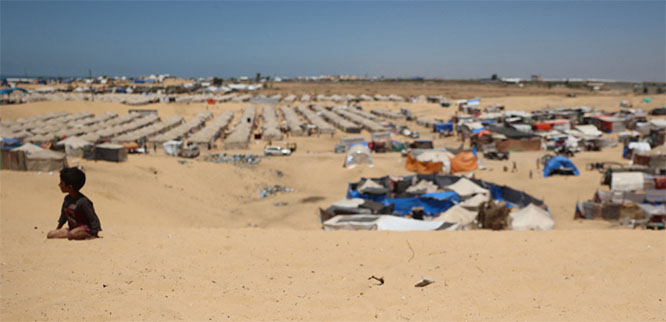
Rafah, a city along the border of the Gaza Strip and Egypt, has entirely been “wiped off the map” by Israel’s brutal campaign of genocide and ethnic cleansing, says the Gaza government media office.
The media office said Sunday in a statement on X that the southern city of Gaza has entirely been demolished to make way for Israel to turn it into a “closed military operations zone."
The statement said Israel’s military forces have been carrying out “horrific massacres against defenseless civilians” in Rafah, creating a “full-fledged humanitarian disaster.”
According to the officials, Israeli forces have destroyed over 90% of homes—more than 20,000 buildings in Rafah.
All of the historical buildings, archaeological sites, museums, modern homes, the civilian infrastructure, the shops, cafes, restaurants, hospitals, schools, and universities have been demolished.
The officials said the regime's forces have also demolished 22 of 24 water wells, including a large water treatment plant and facility that was built 25 years ago by the Canadian government.
“Tens of thousands of families” are now without safe drinking water, and over 85% of the sewage system has been destroyed, raising fears of disease outbreaks, said the statement.
At least 12 medical centers are out of service, including Abu Yousef al-Najjar Hospital, which was reportedly blown up by an explosive robot.
Rafah is “uninhabitable,” now, the media office said.
The Israeli military’s goal, it said, is to “empty the land of its people and alter its geographic and demographic features.”
Rafah, a city that was built over 3,300 years ago, had a population of 171,889. As recently as February, 1.4 million Palestinians took shelter there as a result of Israel’s forced displacement of the population in northern parts of the besieged enclave.
The city, which was once designated as a "safe zone" by Israel's military, has now been reduced to rubble. The regime's military has now seized the ruins of Rafah and ordered every survivor out, to expand its "security buffer zone" along Gaza's borders.






Comments
Add new comment